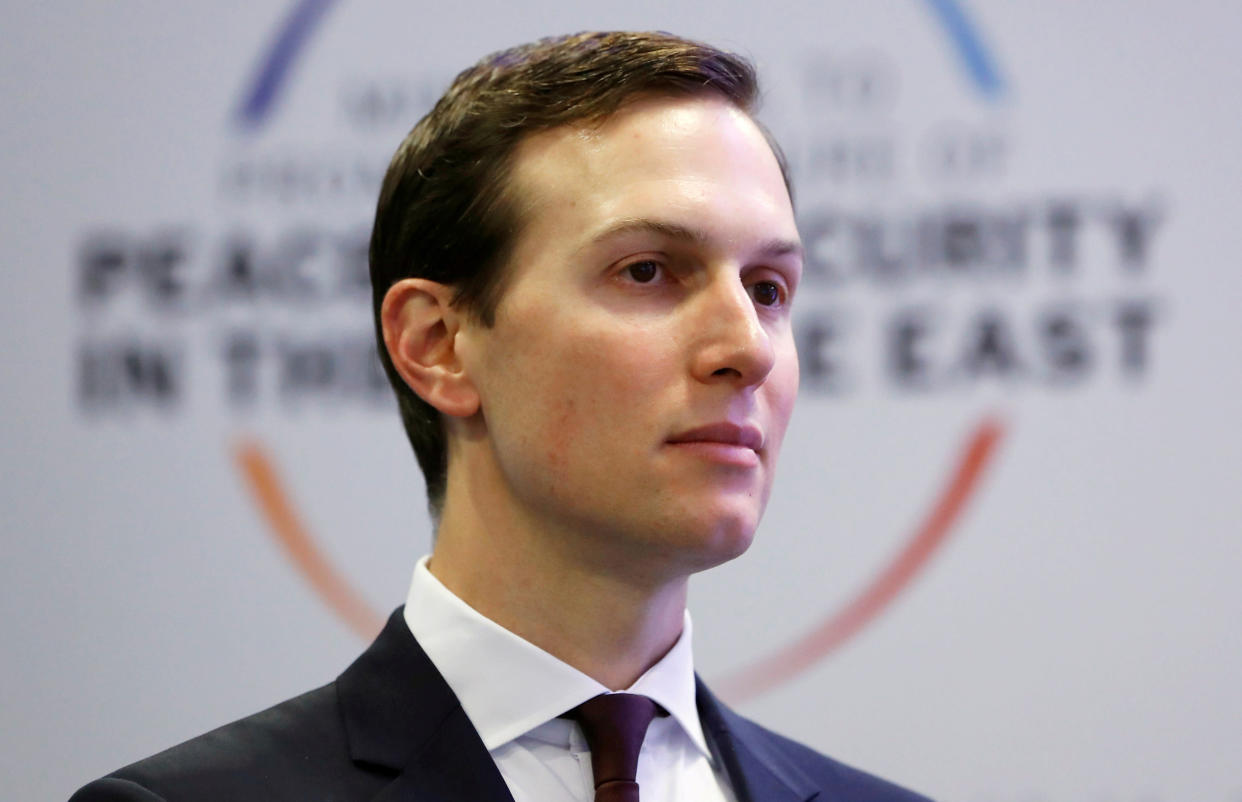When it comes to security clearances, the president has total power — despite concerns

Although a New York Times report this week that President Donald Trump forced a senior White House official to grant Jared Kushner a top-secret security clearance has led to widespread outrage, particularly from former intelligence and national security officials, experts largely agree the president is mostly free to grant clearances as he sees fit.
“He has the authority to give out any level of access he wants, absent impeachment or the 25th amendment,” Bradley Moss, a Washington national security lawyer told Yahoo News.
The Times report said White House chief of staff John Kelly was so disturbed by Trump’s order that he wrote a contemporaneous memo-to-the-file to document it.
Moss, who has written about Trump’s past exercises of power involving clearances, has concluded that employees have some measure of due process if a clearance is revoked — but if Trump wants to offer information to an adviser, he has carte blanche to do so.
Even if Congress were to choose to investigate and attempt to reform the law on executive authority over security clearances — a task the House Oversight Committee and House Intelligence Committee have already committed to —lawmakers may be unable to challenge Trump’s authority. It’s a question that’s never previously been considered, outside academic hypotheticals, says Moss.
“I’m not even sure Congress can change it, as the authority arguably is inherently the creation of Article II” of the Constitution, wrote Moss.
“Congress can decide whether people have private causes of action to sue if they lose clearances (Congress has never done so), Moss wrote, but what lawmakers can’t do is tell the president he can’t grant top-secret access to anyone he chooses.
Some members of Congress, including Sen. Mark Warner of Virginia, the ranking member of the Senate Intelligence Committee, have focused on the problem of clearances writ large: a painfully slow process that has resulted in a massive backlog for federal employees. But tackling the actual authority to grant clearance is another matter.
Trump derives his ability to dole out clearances using the “exact same authorities” that allow him to unilaterally declassify information, says Andrew Bakaj, a Washington attorney for the Compass Rose Legal Group and a former intelligence officer who served in the CIA’s Office of the Inspector General.
“The president is the ultimate deciding official in this area,” he told Yahoo News.
These questions were last raised in earnest when President Trump shared highly sensitive details about a terrorism threat with Russian officials in the Oval Office. While Trump didn’t “declassify” that information per se, experts largely agreed his authority to share information as he pleases would survive challenge — though it might deter allies from sharing key details about sources and methods in the future.
A congressional aide agreed that “legally, Trump’s allowed to do what he did … our laws were obviously written with the assumption that presidents would … actually care about protecting our national security.”
However, President Trump’s ability to give his son-in-law access to sensitive information, doesn’t mean counterintelligence officials in the United States can’t simultaneously launch investigations to monitor his contacts with foreign officials. (Kushner has been known to frequently engage with foreign counterparts, including Crown Prince Mohammed bin Salman of Saudi Arabia, who has been linked to the murder of Washington Post columnist Jamal Khashoggi.)
Counterintelligence officials are “empowered” to keep tabs on Kushner, said Bakaj, including “looking at money being exchanged … anything that could lead to compromise.”
He told Yahoo News that Kushner may have been able to mitigate concerns about his foreign friendships and his failure to accurately fill out his security forms, “but the totality of the issues” from the attempted backchannel with Russia early on in Trump’s presidency to his ongoing business relationships “would be difficult to overcome,” he said.
But critics argue the issue is about more than what is legally permissible.
“Just because he has the lawful authority to do something, that does not mean the lawful authority cannot be abused,” said David Priess, a former CIA official, COO of the LawFare Institute, and author of the recently published How to Get Rid of a President, a history of attempts to remove commanders in chief.
Adam Schiff, chairman of the House Intelligence Committee, agreed that Trump’s decision amounts to “a serious abuse that endangers our security,” he wrote in a tweet.
However, there may not be a legal remedy for this kind of abuse, argues Mark Zaid, a prominent Washington national security attorney.
“If you want to use term generically as a lay person, fine,” he wrote in a tweet. “But I respectfully disagree that a President who utilizes clear constitutional power to grant security clearance constitutes ‘abuse,’ certainly not as a legal matter.”
Trump’s granting Kushner access to secrets may be less about a legal abuse of power than the message it sends to large number of government personnel whose continued employment depends on holding onto their security clearances.
“People who have never worked in government may not understand what a big deal this Kushner story is,” wrote Matthew Miller, a former Justice Department official, in a tweet. “Aside from the security risk and the lies, it is such an insult to every public servant who jumps through a million hoops to do things the right way with zero margin for error.”
Read more from Yahoo News:
Habitat for sale: An oil and gas group calls the tune at the Interior Department
Erin Brockovich blasts Trump over ‘reckless, careless’ environmental rollbacks
The Soviets wanted to infiltrate the Reagan camp. So, the CIA recruited a businessman to bait them.
PHOTOS: Northern California communities flooded by rain-engorged river


